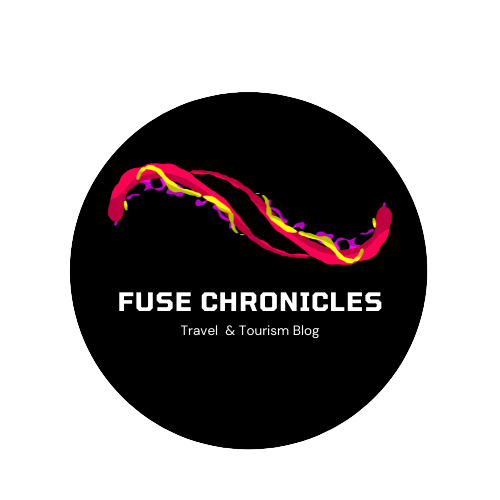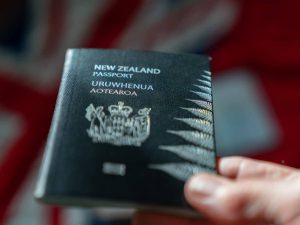If the idea of embracing a digital nomadic lifestyle piques your interest, you’re probably harbouring numerous inquiries about its mechanics. From navigating tax obligations to securing lodging, there’s a myriad of factors to ponder before immersing yourself in this way of life.
Related article: Unlocking Dubai: Indians Granted Five-Year Multiple Entry Visa!
Related article: Brits Beware: Lanzarote Summer Travel Alert!
Digital nomads traverse various locales while engaging in remote work facilitated by technology and the internet. A prime method for acquiring insights involves conversing with individuals seasoned in the digital nomad lifestyle. Fortunately, Fuse Chronicles has undertaken investigations to assist you in this endeavour.
Surveying a diverse sample of 1,200 digital nomads spanning various ages, genders, and nationalities, we were able to delve into their vexations, driving forces, and preferred locales. The insights gleaned from this research which was compiled into a report shed light on work dynamics, lifestyle preferences, and demographic trends.

How Global Wanderers Wander: Origins of Digital Nomads
After massive surveys and sampling opinions from industry giants, we were able to provide details regarding the demographic makeup of digital nomads. Among those polled, the largest percentage hailed from the US (37%), trailed by the UK (12%) and Germany (5%).
Slightly more than half of the digital nomads fall within the 30-39 age bracket, while nearly a quarter (23%) are aged 18 to 29. Gender distribution is fairly even, with 55 percent being male and 44 percent female.
Unveiling the Art of Destination Selection for Digital Nomads
The research conducted by Fuse Chronicles unveiled that cost stands out as the paramount consideration for digital nomads in selecting a fresh locale, with almost half of respondents prioritizing this aspect. Additional factors under scrutiny include sunlight exposure, safety levels, Wi-Fi reliability, and the availability of healthcare services.
Portugal emerges as the top choice among digital nomads, closely trailed by Thailand, Spain, and Argentina. In response to inquiries about their forthcoming destinations of interest, Spain ranks at the forefront, surpassing Brazil, Madeira, and Sri Lanka.

What’s The Nature Of A Digital Nomad’s Job?
In terms of occupation, our survey reveals that slightly over a third of digital nomads are self-employed, with just under a third being employed full-time and around 13% being entrepreneurs or business owners. The IT and technology sector, along with media, advertising, PR, and marketing, are the most prevalent industries, followed by entrepreneurship, arts, culture, and entertainment.
Regarding income, approximately 25% of respondents believe that digital nomads need to earn between €3,000 and €3,900 per month, with just over 20% opting for the €2,000 – €2,900 range and 18% indicating a need for €4,000 – €4,900.
Concerning taxation, the majority (66%) of digital nomads report paying taxes in their home country, while only 19.4% pay taxes elsewhere.

The most challenging aspect of the digital nomad lifestyle, as per Fuse Chronicles survey, is finding suitable accommodation. Survey participants commonly utilize platforms like Airbnb, booking.com, and Facebook groups for accommodation searches. Private apartments and hotel rooms are the preferred choices, followed by private rooms and hostels. Approximately a quarter of respondents spend €501 – €700 per month on rent, while just under 20% spend €301 – €500.
Difficulty in making friends and meeting new people ranks second among the challenges faced by digital nomads, followed by tax-related issues.
Regarding digital nomad visas, opinions are divided within the survey group. Just over 46% report using such visas, while 44% do not. However, over 60% consider them beneficial, while 15% believe improvements are necessary, and 7% do not find them useful. Specifically, around 60% of respondents find Spain and Portugal’s digital nomad visas beneficial.

What Is The Earning Requirement To Be Classed As A Digital Nomad?
Among those polled, slightly more than a quarter indicated that an income range of €3,000 to €3,900 monthly is necessary for embracing the digital nomad lifestyle. Approximately one-fifth chose the bracket of €2,000 to €2,900, while 18 percent asserted that digital nomads should aim for earnings between €4,000 and €4,900.
How Do Digital Nomads Navigate Taxation Around the Globe?
66 percent of digital nomads surveyed indicate that they fulfil tax obligations to their country of origin, while merely 19.4 percent contribute taxes to a foreign jurisdiction.
What Are The Toughest Challenges Faced by Digital Nomads?
According to the Fuse Chronicles study, digital nomads consider securing lodging to be the most vexing aspect of their lifestyle. Respondents indicated a preference for browsing accommodations on platforms such as Airbnb, booking.com, and Facebook groups. Typically, private apartments and hotel rooms are the favoured options, with private rooms and hostels trailing closely behind.
Approximately one-fourth of respondents allocate €501 – €700 per month for rent, while just under 20 percent budget €301 – €500.
Making acquaintances and socializing ranked second among the challenges faced by digital nomads, followed by concerns about tax matters in third place.

What A Digital Nomad Visa Gives You
The survey respondents were divided almost evenly regarding digital nomad visas. A little over 46 percent reported utilizing them, while 44 percent stated they do not. In terms of their perceived advantages, over 60 percent view them positively, whereas 15 percent believe improvements are necessary, and 7 percent find them unhelpful.
Regarding Spain and Portugal’s digital nomad visas specifically, approximately 60 percent of participants consider them advantageous.
Conclusion
The digital nomadic lifestyle, characterized by remote work and global mobility, intrigues many, but understanding its intricacies is essential. Fuse Chronicles conducted a comprehensive study involving 1,200 digital nomads to shed light on various aspects of this lifestyle.
Demographically, the majority of digital nomads are from the US, with significant representation from the UK and Germany. Most fall within the 30-39 age range, with a fairly even gender distribution.
Choosing destinations involves considering costs, sunlight exposure, safety, Wi-Fi reliability, and healthcare availability. Portugal is the top choice, followed closely by Thailand, Spain, and Argentina. Spain leads as the next desired destination, surpassing Brazil, Madeira, and Sri Lanka.
Occupationally, digital nomads are predominantly self-employed or work in IT, technology, media, advertising, PR, marketing, entrepreneurship, arts, culture, and entertainment. Income expectations vary, with many aiming for €3,000 to €3,900 monthly.
Taxation presents challenges, with most nomads paying taxes in their home countries. Finding suitable accommodation, making friends, and understanding tax obligations are major challenges. Platforms like Airbnb and booking.com are commonly used for accommodation searches.
Opinions on digital nomad visas are divided, with around 46% utilizing them. However, over 60% consider them beneficial, particularly visas offered by Spain and Portugal.
In summary, embracing the digital nomadic lifestyle requires navigating various factors, including income generation, taxation, accommodation, and social connections. Fuse Chronicles’ research provides valuable insights for those considering or already living this lifestyle.












One Response